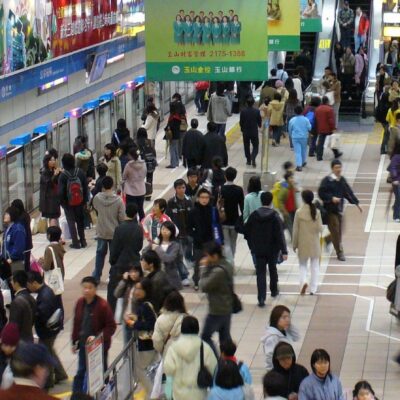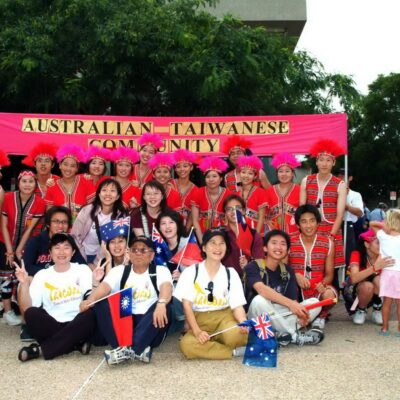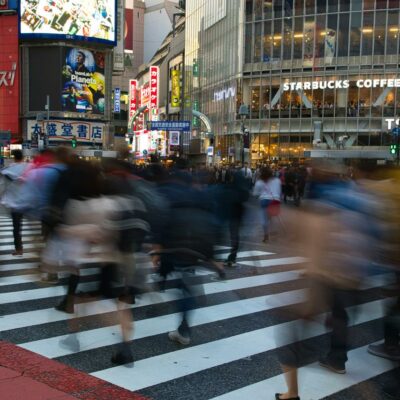This article examines the experiences of Chinese students after Australia closed its national border on March 20, 2020 in an attempt to stop COVID-19 entering.
Voices of international students were not well represented in mainstream public discussion in Australia during the pandemic and knowing what they have gone through and how they felt is critical for educational institutions to create a more inclusive environment for all sections of our community.
Chinese students accounted for just under 37 percent of all international students in Australia who began their studies in 2019. This constitutes the largest single group of more than 160,000 individuals (followed by Indian students who accounted for 23 percent of all international students commencing their tertiary studies).
Chinese students had difficult experiences in Australia after COVID-19 was first identified in Wuhan in China in December 2019 and declared a global pandemic by the World Health Organisation on March 12, 2020. Numerous incidents of verbal and physical attacks against people of Chinese and other Asian backgrounds have been reported since. This has had a negative effect on the well-being and mental health of Chinese students in Australia.
I am involved in a research project in which the research team interviewed more than 15 international students in October 2021 about their experiences in Australia during the pandemic. For the purpose of the article, the interview data comes from three Chinese international students, Cindy, Emma, and Kylie (all pseudonyms) who arrived in Melbourne (Australia’s second largest city) before Australia closed its national border. The data illuminate their experiences, emotions and positions at the early stages of the pandemic.
Australia’s ban on direct travel from China and its national border closure
Australia imposed a ban on travellers from China which took effect on February 1, 2020. This was followed by a more general national border closure March 20, 2020, which remained until it was gradually lifted in stages from November 2021. On April 3, 2020, the then Prime Minister Scott Morrison stated in relation to international students that ‘it is time … to make your way home’. This statement and the national border closure (as well as strict restrictions on travel between Australian states at times) had a serious impact on international students.
The period between February 1 and March 20, 2020, was crucial for many international students and there were significant efforts made to enter Australia during that time. One of their major concerns was that their student visas required them to be onshore and might be cancelled if they weren’t. Also, online subject delivery was not an option at that time. Figures from Australia’s Department of Education and Skills and Employment show that ‘over 47,000 Chinese citizens arrived from third countries up until Australia closed its national border on 20 March 2020’. The Department, educational institutions, Chinese consuls, and commercial migration agents were all involved in enabling students to enter Australia before the full border closure. The Department suggested ways that international students could enter Australia, while migration agents used social media, gathered information from students and commercialised successful entry methods, Chinese consuls negotiated with third countries to make visas available to students 14 days before entering Australia, and Australian universities partially covered travel expenses for international students who entered via those third countries.
Cindy’s story
Cindy was born and partly raised in mainland China, but she possesses Canadian citizenship and first arrived in Melbourne with her mother in 2010 when she was 12 years old. The following year, she ‘was sent to a boarding school’ and states ‘so I think I’m here alone since the beginning of 2011’. She was in mainland China at the time of the outbreak of the pandemic, but managed to enter Australia in mid-February in time for the commencement of her master’s degree:
‘I spent 14 days in Tokyo. Right before Tokyo had the mass breakout, I left Tokyo […] Scott Morrison announced anyone who [..] was in mainland China or has entered in China before the 1st of February cannot go back into Australia, full stop. That’s right after [then US President] Donald Trump’s statement of banning Chinese citizens flying into America.’
She explains why it was so important for many new students to enter Australia to begin their studies:
‘We were saying, if we can’t go back into Australia, a lot of our visas […] will be cancelled because we have not arrived in Australia before the beginning of class time. And that’s the last thing we want because we spent so long [trying to get a visa]. Like for me, it’s okay because I study undergrad[uate] in Melbourne as well, and so for me, it’s a lot easier. They [Australian authorities] just kind of continue my visa.’
Cindy imagines that no one anticipated full courses being offered online during the pandemic, and states ‘I had a huge argument with my parents of whether I should do it [try to enter Australia …] Or should I just give up this masters […] but ended up with ‘Let’s go’’. She goes on to say,I went from Guangzhou to Macao by bus, and I flew to Tokyo from Macau. And then I flew back from Tokyo to Hong Kong and Hong Kong direct flight to Melbourne’.
Her choosing Japan as a third country destination was afforded by her Canadian passport, and students from China (PRC) are outside the visa exemption. It was her choice to take rather complicated and unconventional route, but she admitted that she enjoyed the 14-day trip to Japan with her mother. However, a nerve-racking moment awaited her as soon as she landed in Australia:
‘I was there for three hours trying to prove my identity, trying to prove that I wasn’t in [mainland] China before the first of Feb[ruary]. They let me out after three hours and I thought, ‘I have never appreciated my life as much.’ That was so close. […] And ever since that every single day, we were looking at COVID cases. We were looking at what Scott Morrison said..[for updates on boarder restrictions]’.
Cindy’s story is just one of 47,000 Chinese students who managed to enter Australia by bypassing the travel ban directly from mainland China and illustrates the uncertainty and anxiety amongst Chinese international students.
Emma’s story
Emma was born and raised in mainland China. In the final year of her undergraduate degree in Australia, Emma went back to China during the summer break (December 2019 – February 2020). The outbreak of COVID-19 occurred while she was in China.
‘I had two placements [that] needed to be done. If I can’t finish the placement, I will not be able to graduate. So, I went to Thailand after Australia closed its border to China. I went to Thailand for 15 days and then came to Australia and then finished my placement, finished my study for undergraduate and applied for a masters [degree].’
Emma observes that many of her Chinese friends who had made a lot of effort to study in Melbourne decided to return to China:
‘It was such a tough period. We were in lockdown [in Melbourne] and a lot of my friends, especially Chinese friends, they chose to go back [to China] and everything just switched to online, like the study, the classes, which was a big challenge.’
In answering the question, ‘why did you choose to stay in Melbourne?’, Emma responded as follows:
‘I feel like during this time, COVID is everywhere, even in China […] so I think there’s no point to go back. And also, the most important thing is I’m doing the study in Australia. I want to optimise my experience, so I chose to stay.’
Australian government figures show that 38 percent of Chinese students enrolled in Australia as of March 29, 2020, were located offshore. Without a doubt, large numbers of Chinese students have had their studies in Australia fundamentally affected by Australia’s border closures and the Prime Minister’s encouragement to return ‘home’.
Kylie’s story
Kylie was born and raised in Hong Kong and was enrolled to study in Australia at the time of the COVID-19 outbreak. She took pre-emptive action to enter Australia earlier than her previous arrangement. She was originally due to arrive in Australia in mid-February 2020, but due to the outbreak she decided to arrive just before the end of January.
She was also motivated to leave Hong Kong because ‘the Hong Kong situation is not quite safe for teenagers’. Kylie’s situation was affected not only by COVID-19 but also by China’s increasing control over Hong Kong and its suppression of democracy activism there. She states that she rarely talked about politics at home with her parents ‘because we know that we are going to have a big fight’. In Melbourne also, Kylie avoids discussing politics with her classmates from mainland China:
‘I have to pretend I love the Chinese government a lot. I mean, I cannot be myself in front of them because I have to say what they want me to say, because they are all pro-Chinese government, but I am not. […] That’s really harsh for me, but excluding the political situation […] I think I can build a good relationship with them.
Racial discrimination and mental health
A wide range of academic research and other data in Australia has shown that the COVOD-19 pandemic brought latent racism to the surface. Cindy is particularly vocal about her experience of racism both physical and verbal: ‘people yelling at me, spitting at me because I’m Chinese, I speak Chinese, or they see me using WeChat’. She continues to disclose her experiences with racism in Melbourne:
‘It doesn’t just happen because of COVID-19. I’ve had this since I was 14. Every year I would have people yelling, spitting. Someone even smashed a glass bottle at me, at back of my head. I was just walking. […] I was speaking English, but maybe my English doesn’t sound fluent enough. I finished [sport] training that day, was walking to the tram stop. Just about to get on the tram, off it [the bottle] goes at the back here. I was lucky because my […] badminton bag was the biggest tennis bag you can get and it blocked [the bottle]’
Cindy states that she considers the racist attackers as ‘lunatics’ ‘who are having mental issues’. However, she thinks that, more broadly, the pandemic has created a strong anti-China sentiment among the community generally in Australia and she thinks it is harmful: ‘The ‘Wuhan virus’ really brings out the core issue there’.
As documented in an emerging body of academic research, people of Asian descent in Western nations are suffering from increasing discrimination, a ‘socially mediated ‘secondary contagion’’ of COVID-19. She warns that this is not in Australia’s interests:
‘I’ve heard more and more people saying that the moment they finish their degree, they will go back [to China]. And it also doesn’t help Australia’s interests when China is releasing a lot of incentives for us to go back with a higher education degree.’
The significance of retaining international students for Australia’s economic recovery is clearly articulated by a recent article by Sarah Hunter and Jemma Horsley, and they state, ‘The importance of attracting international students back, and retaining them, is equally important for the country as a whole – the international student of today, is the skilled migrant of tomorrow’.
Cindy describes the impact of racism on her mental health:
We [Cindy and her roommate at a boarding school] never use the term mental health or […] depression and anxiety and things like that. […] I wasn’t diagnosed [with a mental health issue] because I didn’t tell anyone. There’s no way that I could ask for professional help without the introduction of my guardian being involved or anything. And I didn’t want them to be involved because that is [considered to be] a sign of weakness.’
She had to deal with adjusting herself to life in Australia and occasional explicit racial discrimination without parents. It is not difficult to imagine that antagonistic/violent discriminatory attitudes/acts from strangers have a serious effect on the mental health of Chinese students, because even perceived discrimination is enough to affect mental health.
Emma did not experience discrimination directly, but she is concerned about potential discrimination related to Chinese people in Australia due to the deteriorating bilateral relationship as a result of COVID-19 and other issues:
‘The [China and Australia] relation may affect how Australian people view Chinese people and it will cause some potential discrimination issues. […] If I’m trying to look for a job after I graduate in Australia, will I be disadvantaged just because I’m from China? […] This would be my biggest concern.’
Emma says she has mental health issues associated with the pandemic, but she does not feel that a counselling service provided by her university was particularly helpful.
‘The psychologist is an English native speaker and it’s really hard to find a good psychologist who is a Chinese native speaker, so I have to go with the English one. And I feel that whenever I use English to express what I have encountered, I feel like, […] the language makes the things seem not that serious.’
In contrast, Kylie did not talk about discrimination affecting her mental health. She dissociates herself from China as someone from Hong Kong and is critical of China.
The stories of these three Chinese students in Australia reveal their feelings and motivations as well as a variety of issues that Australian universities need to address. They include concerns about policy changes regarding border closures targeting Chinese international students, actual and perceived discrimination, and mental health issues. It is critical that universities address these issues by communicating closely with Chinese students and creating a safe and inclusive university community.
COVID-19, as well as the great power competition between China and the U.S and its allies, continues to manifest itself in racial discrimination against Chinese and other Asians in Australia. In response to this, universities are strongly encouraged to take immediate steps to disseminate ideas and values that transcend national borders and national interests, rooted in the dignity of every human being. At the time of writing, my academic institution had organised a workshop for staff on ‘safety and anti-racism strategies for people with lived experience of racism’. This is a collaboration with a national racial justice campaigning organisation, and I hope that such advocacy event will involve many staff members and students and grow into a movement beyond the university community.
Image: International students in Melbourne. Credit: Alpha/Flickr.
All names are pseudonyms.




